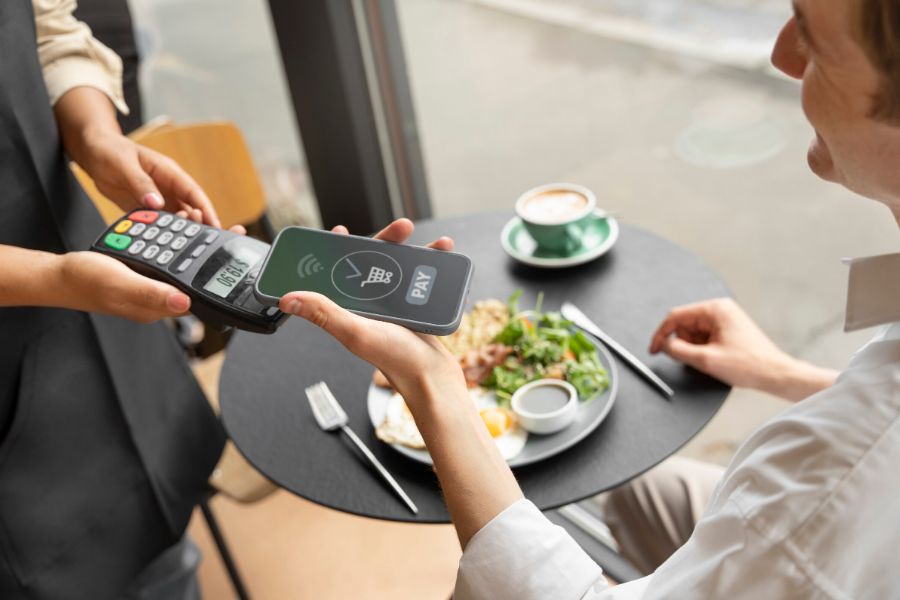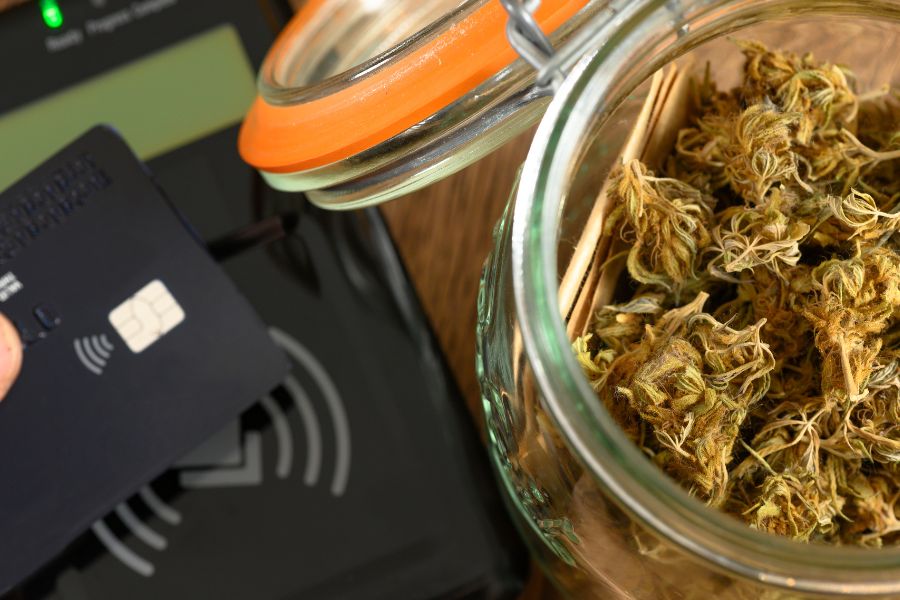To some extent, we might all agree that every business needs a POS system for its advantages. Previously, we have discussed how such a system helps fashion and food & drink retailers with their operations. Today’s article is all about how much a POS solution for restaurants matters to ensure a sustainable business in this food & beverage industry.
Biggest challenges facing restaurants
Unengaged customers
According to a study, it’s unlikely for 70% of previously loyal customers to return to a restaurant, compared to only 3-4% of diners returning monthly at a minimum.
“Modern customers are promiscuous. With countless competing options, they don’t mind spreading the love,” said Zach Goldstein, CEO, and founder of Thanx. He also stated that restaurants tend to focus on customer acquisition while customer retention is, in fact, 7 times more cost-effective.
Moreover, engaging customers are extremely important and profitable for restaurants as indicated by previous research:
- Restaurant (casual dining): Engaged customers visit their favorite restaurants 56% more frequently per month than disengaged customers.
- Restaurant (fast food): Engaged customers are 28% more likely to visit their favorite restaurants every month than disengaged customers.
Changing consumer behaviors
Over the past few years, “eating in” has become easier and more common than ever before. That is thanks to companies like Uber Eats enabling customers to eat restaurant-quality food right at their homes without going anywhere. Particularly when the world is still undergoing the COVID-19 pandemic, consumers are shifting towards online food ordering more than ever.
As a result of this shift in dining habits, restaurant chains must bring up their game and play to their natural strengths.
Services eating away at profits
When it comes to restaurants, most of us, as consumers, are used to tapping into food apps such as GrubHub and DoorDash. And while it’s easy and convenient for us, it’s not as easy for restaurants as delivery services are eating away at their profits.
As stated by The Guardian, fixed costs like food, labor, and overhead take away approximately 90% of the income for a typical restaurant. Once all expenses are paid, it’s usually 2-6% net profit left for restaurants. And unfortunately, the fees charged by the delivery apps are eating up that little, normally 20-30% of what customers pay for each order.
Ineffective inventory management and menu pricing
Managing and operating expenses is what restaurant owners should always keep a close watch over. Crucial elements of keeping costs low are proper inventory management and proper menu pricing. Otherwise, restaurateurs have to face unexpected expenditures and undergo supply overages or shortages, both of which are equally unfavorable. In order to ensure ideal inventory management and menu pricing, the ordering process needs to be fine-tuned to minimize waste and maximize the gross profit of menu items. It’s vital to know how much ingredients and inventory cost, and how those costs can fluctuate over time. Accordingly, menu pricing should be adjusted as smoothly as possible. It’s a fact that gradual and small increases in menu prices are easier to sell than large and noticeable increases done infrequently.
Crushing operating
According to a report, 60% of restaurants shut down within the first year of establishment, and the number is approximately 80% in the first five years. No matter how lucrative a restaurant appears from afar, running a restaurant business is a time-consuming and exhausting task. So what are the reasons behind all of these failures?
Lack of proper information about what is in the industry and reports about how their restaurant business is doing results in their failure. It’s unfortunate that the majority of restaurateurs don’t even know that they have done wrong when facing failure.
A POS solution for restaurants comes to a rescue
Boost customer engagement
Loyalty schemes
Loyalty programs can add a lot of value to an online business in the eyes of customers looking for the best deal. With 75% of consumers saying they favor companies that offer rewards, loyalty programs present a massive opportunity to keep them returning.
A loyalty extension integrated into a POS makes a great POS solution for restaurants to boost customer engagement. What better way is there to promote loyalty than through a loyalty program? Loyalty programs can take any number of forms but are usually characterized by a rewards system that rewards customers based on the amount spent or frequent purchases. By using customer data, it is possible to cater the rewards to each individual, offering a more personalized incentive for loyalty.
Mobile experiences
It’s a fact that mobile devices and mobile consumer apps are handy and effective in engaging audiences and enhancing the customer experience for restaurants. There has been a rapidly growing trend of restaurants investing in their mobile experience to foster their relationship with customers. Thus, a POS solution for restaurants that supports a mobile interface is favorable. For example, with the non-stop development of technology, nowadays, a mobile consumer app backed by a POS system can:
- Allow customers to view the menu online
- Send personalized push notifications
- Let customers make reservations
- Locate the nearest restaurant
- Make personalized recommendations
- Showcase the in-store physical surroundings (i.e. music playlist)
Fulfill customer preferences
E-commerce
E-commerce integration is a must-have feature of an outstanding POS solution for restaurants. As customers are more and more inclined towards online ordering and eating in, it’s high time restaurants expanded their e-commerce offerings. Some advanced POS systems facilitate restaurants to build their digital platforms (such as a website) that let customers make an order and pay for it all online. Even better, they can even have the order shipped to their front door or pick it up in-store to save a little delivery fee. Moreover, online ordering integration in POS helps reduce expenses in paying for online food ordering and delivery platforms such as Uber Eats or FoodPanda.
Self-service options
Diners now demand more and more control and independence over their experience at restaurants. They want to have more time to consider among dishes without any expecting stares from staff members. That’s why offering self-service options is crucial. Restaurants can fulfill that in many ways with a POS solution supporting a consumer app or self-service kiosks. With such functionality, consumers now can have full control over their buying journey, from ordering paying to picking up.
Manage third-party fees
Multiple shipping methods
Just like payment, customers have their personal preferences for shipping methods. Fulfill that, then you will become their personal preference. For retailers and store operators like you, having a POS system facilitates many shipping methods and makes it easy to choose or change the shipping address is crucial. Some shipping methods backed by a POS are:
- Store shipping
- Retail store pick up: you can select the outlet that your customers wish to ship their order from
- Others can also be supported
Payment integration
Using a payment gateway can ensure secure and transparent transactions, yet can be costly. A POS solution for restaurants with a built-in payment integration feature is what you need. With such systems, you can have a good payment processing rate as some POS providers have deals with their partner payment providers. Even better, some POS developers charge no extra fee for payment integration in their POS. Remember that as business owners and operators, you should always review transaction fees to ensure they’re in line with industry standards and don’t be afraid to negotiate.
Enhance inventory management and menu pricing
Menu management
A restaurant menu management software is a POS software feature used to create, manage, and optimize the restaurant menu. It is integrated with the billing and inventory management module and helps you curate and manage the restaurant menu.
Here are the features you should look out for while choosing a restaurant menu management software.
- Recipe management
- Central menu management
- Ease in creating categories
- Smart menu display
- Detailed reports and insight
Inventory management
Nowadays, restaurant management software isn’t a luxury, it’s a must. Such software improves inventory tracking and ordering and helps restaurant businesses:
- Update inventory automatically
- Know their stock levels in real-time
- Prevent food losses and minimize waste
- Get control of food costs
- Manage vendors
- Minimize human error
- Reduce the number of employees required to track inventory
- Streamline their processes
Improve operational efficiency
Comprehensive reports
Comprehensive and accurate reports are critical for a smooth and effective restaurant operation. Thus, a POS solution for restaurants offering such a feature is helpful. As a restaurant manager, you must know where you stand with a weekly report outlining beverage, food, and labor costs. Even better, a POS with real-time synchronization in data updates is ideal. With that, you can adjust promotions based on fluctuating food costs or inventory availability for improved operating cash flow.
Staff management
Restaurant supervisors must know how to use POS with well-functioning staff management features. They should always monitor reporting data during shifts, like real-time labor costs, and motivate their employees by setting goals. Some key features to look for in just-right staff management in POS include:
- Shift management: clock-in, clock-out, cash-ins, cash-outs in each shift, tips calculating, etc.
- Staff accountability: unlimited staff roles, customized manager approval, etc.
In a nutshell
To wrap it all up, running a restaurant business is hectic and time-consuming to get it right. Some so many tasks and responsibilities need to be handled properly. The good news is, that restaurateurs can always seek help from a POS solution for restaurants to make their life much easier. A great POS designed specifically for restaurants with its robust features can help
- Boost customer engagement (loyalty schemes, mobile experiences)
- Fulfill customer preferences (e-commerce, self-ordering options)
- Manage third-party fees (payment integration, multiple shipping methods)
- Enhance inventory management and menu pricing (menu management, inventory management)
- Improve operational efficiency (comprehensive reports, staff management)
If you want to know more about how to leverage a POS system to upgrade your businesses, contact us to talk to our POS experts. We, ConnectPOS, will be your tech-savvy companion on the way to a successful and sustainable business!
ConnectPOS is a all-in-one point of sale solution tailored to meet your eCommerce POS needs, streamline business operations, boost sales, and enhance customer experience in diverse industries. We offer custom POS with features, pricing, and plans to suit your unique business requirements.




